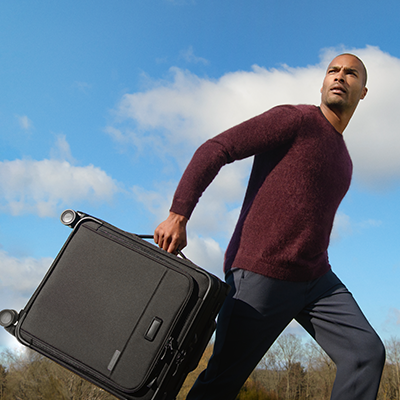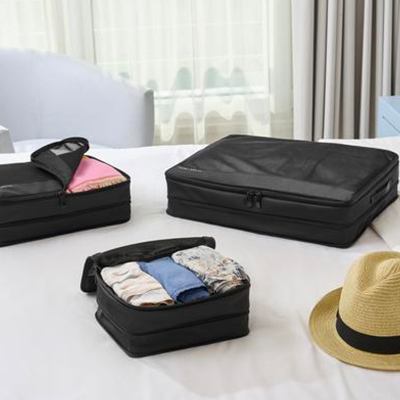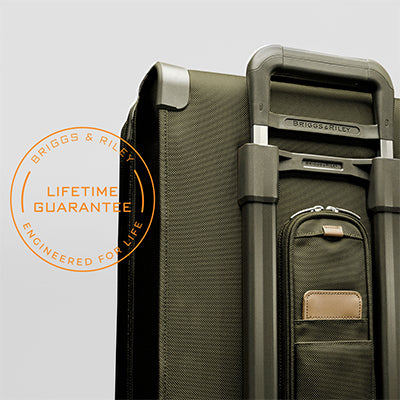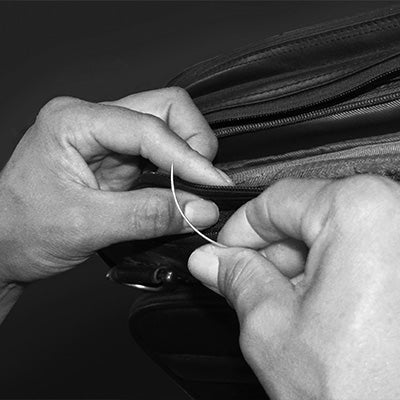Planning a trip and packing aren’t the only two things you have to worry about when traveling. Depending on the destination, you’re going to need the appropriate documents, too. After all, you don’t want to be turned away at the airport — or worse, in another country, once you arrive.
So, what is a travel document? Basically, it is anything required to get from point A to point B. But navigating all of the paperwork can be overwhelming and confusing, so we’ve put together the ultimate guide to travel documents so that your next big trip goes as smooth (and stress-free) as possible. You’ll never need to ask yourself, “What identification do I need to fly?” ever again.
Driver’s License or State ID
It goes without saying, but even if you’re traveling within the United States, you need some form of identification, such as a driver’s license or state ID. Be sure to keep an eye on the expiration date so that it’s valid during the duration of your entire trip.
Passport
Do you need a passport to travel within the U.S.? In short, no. A passport is an essential travel document that’s required to travel to another country. Many people want to know about passport vs. passport card. The US Passport Card is for those driving or cruising to Canada, Mexico, Bermuda, and the Caribbean.
How to Get a Passport
Here are some fast facts on getting (and renewing) your passport:
- Cost: $135 for the first time ($105 for those 16 and under), $110 to renew. Minors need to apply with at least one parent — the other parent, if not present, must provide notarized permission.
- Duration: U.S. passports are good for ten years for adults and five years for minors.
- Where to Apply: Courthouses, post offices, municipal buildings like City Hall. You can find a list of acceptable locations at the U.S. Department of State's travel site.
- How Long it Takes to Get a Passport: Approximately six weeks, but if you need it faster, there’s a $60 expediting fee (not including shipping.), If you’re traveling within a couple of days, you can pay an additional $60 — though you may need to prove you have timely travel plans by showing airline tickets, etc. So don’t forget to plan ahead!
- Expiration: Keeping tabs on when your passport expires is vital. Most European countries require that your passport is valid for a minimum of three months after your ticketed date of return to the US. Some countries, like Russia, require a six-month time frame. Without following these rules, you could be denied entry into a country. There’s no need to memorize these rules; simply check the US Department of State's travel site.
- Frequent Flyer: If you regularly fly internationally, make life a bit easier by entering the US Customs' Global Entry Program, which lets you bypass passport control at major US airports for just $100.
Travel Visa
Visa VS passport? A visa is a stamp placed in your passport allowing you to enter specific countries, like Turkey or Russia, providing you’re not on a cruise. A visa is not required to visit most of Western and Eastern Europe. However, if you’re traveling to any of the Schengen and most non-Schengen countries in Europe, you can only stay for up to 90 days within 180 days. After that, you must then apply for a long-stay visa — but be prepared for a lot of paperwork and red tape. Speak to your local embassy or consulate for assistance with long-stay visas. For travel beyond Europe, get up-to-date information on visa requirements from the US Department of State.
Copies of all Identification Documents
It’s hard to think of anything bad happening on your vacation when you’re busy packing your bathing suit and sun cream, but unfortunately, loss and theft can and do happen. With that in mind, be sure to make photocopies of all of your IDs, health insurance cards, and credit cards (front and back because you’ll need those phone numbers) so it’s easier to recoup your losses. You’ll also need that backup of your passport to try and get a new one at the closest consulate located in or near your destination.
Travel Documents
While there are apps (think TripIt, PlanChat, and TravelBank) and the wallet on your phone to help you keep track of all your travel documents, what happens if you lose your phone or accidentally drop it in the swimming pool? It’s always a good idea to have a backup plan by printing hard copies of your plane, train, automobile, tour, event, and hotel/Airbnb bookings — and don’t forget travel insurance, too.
COVID-19 Documents
This relatively new (and hopefully, very temporary) document rule changes regularly — almost in real-time — depending on state and country regulations. One of the critical pieces of information you’ll need is a negative COVID-19 PCR test within a specific time frame, typically 72-hours. You won’t be able to board a plane without it. Many countries require certain attestations that cover details such as the reason for travel, ensuring you haven’t had any symptoms of COVID-19, quarantine, etc. You’ll likely need to have a separate set of documents for your own country, as well as the one you’re visiting, so check with consulates in both locations to get the most up-to-date list of required documents. It wouldn’t hurt to check with your airline, too.
Before You Go...
While there’s no doubt that road trips are more accessible than plane travel, it’s no surprise that many of us have a wanderlust to see far-off places after a challenging year. While organizing travel documents is not the most exciting part of planning a trip, it’s definitely one of the most important. Also, remember to continue to exercise vigilance when you’re traveling until the world is a safer place to visit.


















Leave a comment